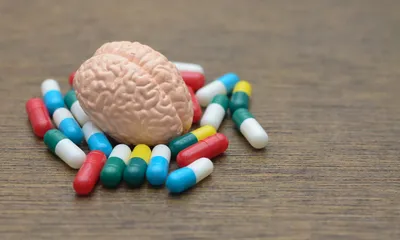Menopause
-
Description
-
Signs & Symptoms
-
Anatomy
-
Cause
-
Diagnosis
What is Menopause?
Menopause is the period of time in a woman’s life when her menstrual cycle slowly diminishes, and she is moving past her reproductive years. For most women, this begins sometime in their early 50s, and major drops in hormone levels cause profound changes to the body during this time. However, after the end of the menopausal stage, the symptoms will stop and not be an issue any longer.
There are three stages of menopause. Perimenopause can be up to 10 years before a woman fully stops ovulating, and symptoms can start at this time. Menopause is when ovulation ceases completely for more than 12 months. A woman then enters the postmenopausal stage where she will be for the rest of her life.
Menopause symptoms may be worse for some women than others based on their physiology, and some women have them stretch into the early parts of their postmenopausal years. It is possible for a woman to have early menopause, and this is when a woman starts ovulating before the age of 45. This is usually attributable to primary ovarian insufficiency.
What Causes Menopause?
Menopause occurs as part of a natural body process where the reproductive cycle that began in puberty starts to end. This will happen for nearly all women around the same time in their life. Decreases in estrogen hormone while progesterone hormone levels stay up is what causes reactions in the body that promote menopause symptoms. In rare instances, surgical removal of the ovaries because of ovarian cancer will initiate menopause for a woman. Chemo or radiation therapy can be another explanation for what causes early menopause.
Menopause Symptoms
All women going through menopause will experience physical and mental changes because of the major changes in their hormones. Vasomotor symptoms is the clinical term for hot flashes, and this sensation of being suddenly too warm over your body is one of the most common and problematic menopause symptoms. The other ones are night sweats and cold flashes, and this can be equally disconcerting for a woman when she sweats profusely at night or is unreasonably cold.
Other symptoms may include:
- Emotional and mood swings
- Irregular periods during the premenopausal stage
- Urinary urgency
- Insomnia
- Dry skin, eyes, or mouth
- Vaginal dryness
- Breast tenderness
- Joint or muscle pain
- Loss of libido
- Concentration difficulties
- Weight gain
- Thinning hair
Menopause Treatment
The most conventional approach to menopause treatment is to have the woman start on a prescription medication for relief, and two of the more common ones are Activella and the Estring vaginal ring for menopause. Women who do not get relief from medications may proceed with hormone replacement therapy for menopause, and this is quite common for women with early onset menopause. Either estrogen or estrogen/progestogen therapy may be needed.
There can be other menopause treatment options too, including taking birth control pills to balance hormones, antidepressants to better manage mood swings, or Ditropan (Oxybutynin) for hot flashes. There are creams for vaginal dryness treatment too as this is another common symptom women experience during this time. Calcium supplementation may be needed for women who are more at risk for osteoporosis because of menopause.
Signs & Symptoms
- Hot flashes
- Night sweats
- Irregular periods
- Vaginal dryness
- Mood changes
- Weight gain and slowed metabolism
- Thinning hair
- Dry skin
- Loss of breast fullness
- Sleep problems
Anatomy
- Ovaries
- Uterus
- Vagina
- Endometrium
- Hypothalamus
- Pituitary gland
- Bones
- Breasts
Cause
- Natural decline of reproductive hormones
- Surgery that removes the ovaries (oophorectomy)
- Chemotherapy and radiation therapy
- Primary ovarian insufficiency
- Genetics
- Autoimmune disorders
Diagnosis
- Medical history review
- Physical examination
- Blood tests (FSH, estradiol)
- Thyroid function tests
- Lipid profile
- Bone density test



